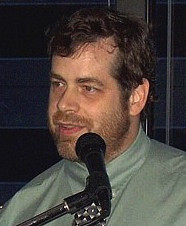Cite this page: Shackelford R. PCR history & applications. PathologyOutlines.com website. https://www.pathologyoutlines.com/topic/MolecularPCRhistory.html. Accessed April 17th, 2024.
History
Pre-PCR history
- Common technique used to amplify very small amounts of a specific DNA sequence, even a single copy, into millions or up to 100 billion copies in a short time (Wikipedia: Polymerase Chain Reaction [Accessed 4 June 2018])
- Technique works best on short DNA sequences of 100 to 1,000 base pairs and employs dNTPs, Taq DNA polymerase, oligonucleotides, specific buffer conditions and thermal cycling
- PCR has many variations and is a fundamental tool in medical research and molecular pathology
- Developed in 1983 by Kary Mullis, who won the Nobel Prize in Chemistry in 1993 for this work (Wikipedia: Kary Mullis [Accessed 4 June 2018])
- Presently over 350,000 papers have been published which use or refer to this technique
- Prior to PCR technology, obtaining multiple copies of a specific DNA sequence was commonly done but often laborious
- Most protocols involved:
- Isolating many copies of the sequence(s) desired
- Cloning the DNA into a viral or bacterial plasmid vector
- Transfecting, selecting and growing the bacteria carrying the DNA and vector
- Reisolating the desired sequence(s) from bacterial cultures by purifying and cutting the plasmids
- Limitations:
- Procedure could take several weeks
- Often difficult to get pure DNA / gene sequences from the complex mixtures typically used to obtain DNA samples
Initial discovery of PCR
- Conceived in 1983 by Kary Mullis, working at Cetus Corporation as a chemist (Wikipedia: Kary Mullis [Accessed 4 June 2018])
- Initial idea was to use a pair of primers to bracket the desired DNA sequence and to copy it repeatedly using DNA polymerase
- Mullis received a $10,000 bonus from Cetus for the invention; Cetus later sold the patent to Roche for $300 million; Mullis may have received additional money for testifying on behalf of Cetus in a patent lawsuit
Later PCR related work
- Cetus initially used PCR to detect the hemoglobin sickle cell point mutation
- Mullis thought of using DNA polymerase from Thermophilus aquaticus (Taq), which was heat resistant; this eliminated the need to add enzyme after every cycle of thermal denaturation of the DNA, making the technique more affordable and subject to automation (Wikipedia: Thermus aquaticus [Accessed 4 June 2018])
- Mullis won the Nobel Prize in Chemistry in 1993 for this work
Current applications
Archeology and evolution
- DNA that has survived in ancient tissue up to 45,000 years old can be amplified to provide large quantities for sequencing
- Analysis of DNA from ancient organisms is used to study ancient species, as well as evolution (Genome Res 1991;1:107)
DNA sequencing
- Determining the order of DNA bases
- Traditional Sanger method is not based on PCR but some newer sequencing methods use PCR to make copies of the DNA before the sequencing begins (Wikipedia: DNA Sequencing [Accessed 4 June 2018])
- Although PCR introduces replication errors, DNA sequencing of the total PCR product may give the correct sequence because
- Errors occur in only a small percentage of the bases
- Incorporation of incorrect bases is essentially random
- New DNA polymerases have lower frequencies of mutations due to proofreading capabilities (Strachan: Human Molecular Genetics, 4th Edition, 2010)
Forensic identification
- To identify individuals, forensic scientists scan 13 DNA regions or loci that vary from person to person and use the data to create a DNA profile of that individual ("DNA fingerprint")
- Information is stored in the CODIS database, funded by U.S. FBI (Wikipedia: Combined DNA Index System [Accessed 4 June 2018])
- There is an extremely small chance that another person has the same DNA profile for a particular set of 13 regions
- PCR is used to make millions of exact copies of DNA from a biological sample, which allows use of biological samples as small as a few skin cells
- Note: great care must be taken to prevent contamination with other biological materials during the identifying, collecting and preserving of a sample
Medical and pathogen diagnosis
- Hemoglobinopathies (Clin Lab Haematol 2004;26:159)
- Measuring residual disease posttreatment (Clin Lymphoma Myeloma 2009;9:S266)
- Prenatal diagnosis of aneuploidy (Folia Histochem Cytobiol 2007;45:S11)
- Diagnosis of specific infectious disorders, including:
- Aspergillosis / fungi (Rev Iberoam Micol 2007;24:89)
- BK virus (Clin J Am Soc Nephrol 2006;1:374)
- Other viruses (Curr Issues Mol Biol 2007;9:87)
- Salmonella / bacteria (J Infect Dev Ctries 2008;2:421)
- Schistosomiasis / parasites (Mem Inst Oswaldo Cruz 2006;101:145)
Molecular genetics
- Study of the structure and function of genes at the molecular level
- Includes study of how genes are transferred from generation to generation (Wikipedia: Molecular Genetics [Accessed 4 June 2018])
Molecular pathology
- Identification of gene rearrangements associated with specific tumor types (Jpn J Clin Oncol 2007;37:79)
- Molecular classification of leukemia (Br J Cancer 2007;96:535)
Paternity testing
- Use of genetic fingerprinting to determine if a man is the biological father of an individual
- Current techniques use PCR and restriction fragment length polymorphisms
- Older techniques used ABO blood group typing, analysis of other proteins or HLA antigens
- In a DNA parentage test, the probability of parentage is 0% if the alleged parent is not biologically related to the child and typically > 99.9% if the alleged parent is biologically related to the child (Wikipedia: DNA Paternity Testing [Accessed 4 June 2018])
Tissue identification
- PCR is part of a process of tissue fingerprinting to identify specimen mixup, cross contamination, floaters or carryover artifacts (Adv Anat Pathol 2008;15:211, J Mol Diagn 2007;9:205, Am J Clin Pathol 1993;100:666)
Transplant engraftment analysis
- Transplant engraftment studies are used to evaluate the level of donor versus recipient cells in posttransplant specimens
- Unique DNA fingerprints from recipient and donor are used to determine the proportion of each contained within the total DNA extracted from the posttransplant specimen; these percentages correspond to relative amounts of donor and recipient cells in the specimen
- Engraftment studies are sequentially performed on transplant patients to monitor closely the levels of donor and recipient cells so that appropriate therapeutic intervention can proceed, if necessary
- Analysis often uses short tandem repeats (STRs) as part of the "fingerprint" (Bone Marrow Transplant 2002;29:243)
Tumorigenesis
- PCR helps understand the importance of particular molecules and pathways that may be involved in tumorigenesis (J Histochem Cytochem 2010;58:277, BMC Cancer 2009;9:315)




